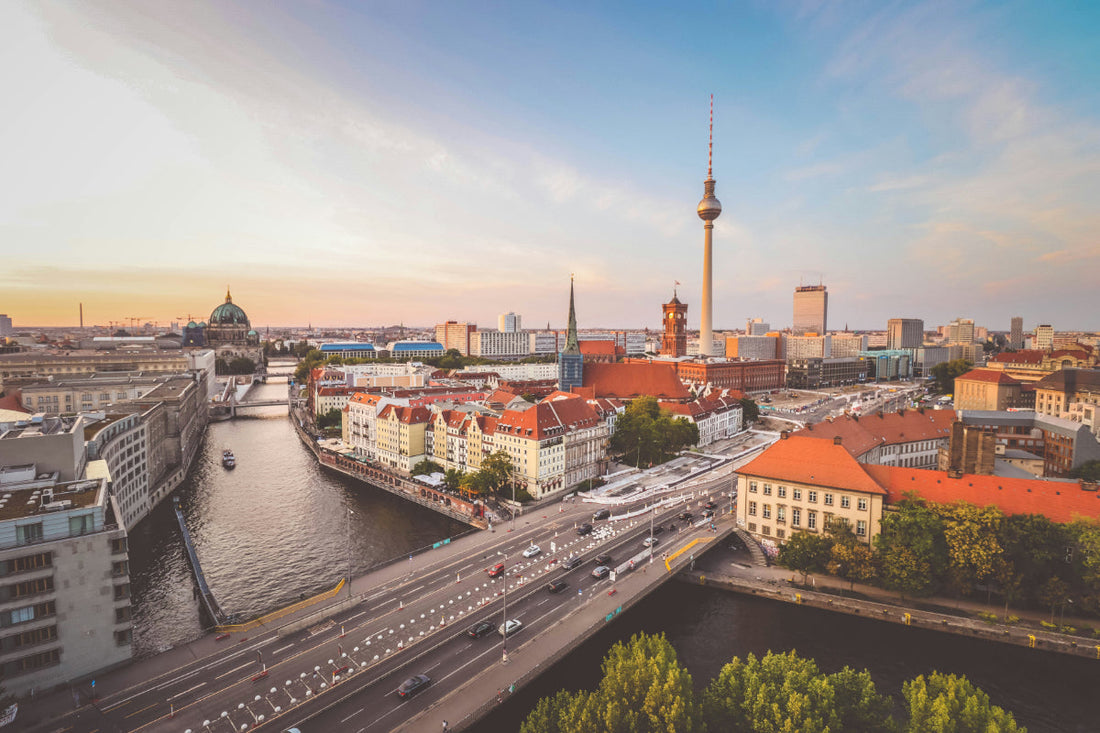From historic castles to modern cities, scenic Alpine landscapes to vibrant beer gardens, Germany offers travellers a wealth of cultural, natural, and culinary experiences. Whether you’re exploring the bustling streets of Berlin, wandering the romantic lanes of Heidelberg, or hiking through Bavaria’s mountains, staying hydrated is essential. But many travellers ask: "Is tap water in Germany safe to drink?"
The reassuring answer: Yes, tap water in Germany is generally very safe to drink. However, a few nuances and traveller considerations can help ensure you enjoy every sip.
For global water safety insights, check our Interactive Tap Water Safety Map.
Overview of Tap Water Safety in Germany
Germany’s tap water is among the safest and highest quality in the world, strictly regulated under the German Drinking Water Ordinance (Trinkwasserverordnung) and European Union standards. According to the World Health Organization (WHO) and the Centers for Disease Control and Prevention (CDC), drinking tap water in Germany poses no health risks under normal conditions.
Municipal water suppliers regularly test water for contaminants including bacteria, viruses, heavy metals, nitrates, and pesticides. Water quality reports are publicly available and demonstrate consistently high safety standards.
Risk Level: ✅ Safe to Drink - No Filter Needed, But Can Improve Taste & Purity
Common Concerns and Water Quality Variations
Although tap water is safe throughout Germany, a few considerations may affect travellers:
-
Taste Differences: Some travellers notice a slight chlorine or mineral taste, especially in urban areas. This is harmless but may be unfamiliar to those used to softer water.
-
Hard Water Regions: Many parts of Germany, including Berlin and southern regions, have "hard" water with high calcium and magnesium content. While safe, it may leave mineral deposits in kettles or affect soap lathering.
-
Old Building Pipes: In rare cases, very old buildings may still have lead pipes (mostly replaced across Germany by the late 1990s). While regulations require mitigation, travellers staying in historic properties may prefer filtered water as an extra precaution.
Tips for Ensuring the Best Drinking Water Experience
To enhance taste and ensure peace of mind while traveling in Germany, consider these practices:
Recommended Water Practices:
-
Use a Filter Bottle: A filtration solution like the WaterWell™ Travel Filter Bottle improves taste by reducing chlorine and filters out trace impurities.
-
Drink from Public Fountains: Public drinking fountains (Trinkwasserbrunnen) in cities like Berlin, Munich, and Hamburg provide safe, free drinking water. Look for signs indicating “Trinkwasser.”
-
Use Bottled Water as a Backup: Widely available at low cost in supermarkets and kiosks, bottled water offers convenience on long excursions.
Hygiene and Dining Tips:
-
Ice cubes in restaurants and bars are safe as they’re made from treated water.
-
Tap water is safe for brushing teeth and food preparation throughout Germany.
Reliable Sources of Drinking Water in Germany
Travelers will find many safe water sources across Germany:
-
Tap Water in Homes and Hotels: Always safe unless explicitly stated otherwise.
-
Public Water Fountains: Clearly marked and maintained; many are part of citywide hydration initiatives.
-
Restaurants and Cafés: Unlike other countries, it’s not customary for German restaurants to serve tap water for free; bottled water is usually offered instead.
Why Use a WaterWell™ Filter Bottle in Germany?
Even in a country with excellent water safety, the WaterWell™ Travel Filter Bottle adds value for travellers:
-
Enhanced Taste: Removes chlorine and improves the flavour of hard water.
-
Convenience: Allows quick refills from public fountains or hotel taps.
-
Eco-Friendly: Reduces single-use plastic waste, aligning with Germany’s strong environmental culture.
Order Your WaterWell™ Travel Filter Bottle →
Explore Water Safety Globally with Our Map
Planning trips beyond Germany? Use our Interactive Tap Water Safety Map for water safety insights worldwide.
FAQs About Drinking Tap Water in Germany
Is tap water safe everywhere in Germany?
Yes, tap water meets high safety standards nationwide. Isolated concerns may exist in older buildings; filtering adds extra assurance.
Do Germans drink tap water?
Yes, though many Germans prefer bottled mineral water for taste rather than safety reasons.
Can you request tap water in German restaurants?
It’s not common practice. Many restaurants don’t offer free tap water but will provide bottled water for purchase.
Should I worry about lead in German water?
Lead pipes have been mostly phased out. If staying in historic accommodations, consider filtering as an extra precaution.
Rural and Regional Differences in Water Quality
Germany’s rural regions maintain excellent water quality thanks to robust regulations. Smaller towns may use local groundwater sources but still comply with national safety standards. Water taste and hardness may vary based on regional geology.
Seasonal and Environmental Considerations
Seasonal factors rarely affect water quality in Germany, but travellers should note:
-
Flood Events: After major floods, local advisories may recommend temporary boiling or avoiding water consumption until testing confirms safety.
-
Construction Zones: Occasional disruptions in city plumbing during roadworks may lead to temporary discoloration or turbidity; hotels typically provide notices.
Additional Reading and Official Resources
Stay informed with official and up-to-date sources:
Final Thoughts
Germany’s excellent tap water standards allow travellers to hydrate confidently while exploring its cities, countryside, and cultural treasures. By carrying a WaterWell™ Travel Filter Bottle, you’ll enjoy fresh-tasting, convenient hydration with an eco-friendly edge.
Raise a glass (or bottle) to clean, safe water—and to your unforgettable German adventure!
Explore more global water safety insights on our Interactive Tap Water Safety Map.
Disclaimer: The information provided in this guide is for general informational purposes only and should not be considered medical advice. Travelers should consult local health authorities or medical professionals for personalized advice regarding water safety and health precautions while abroad. While WaterWell™ products are designed to reduce contaminants, no filtration system can guarantee 100% protection from all possible pollutants or pathogens.

